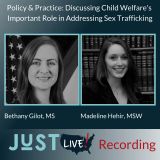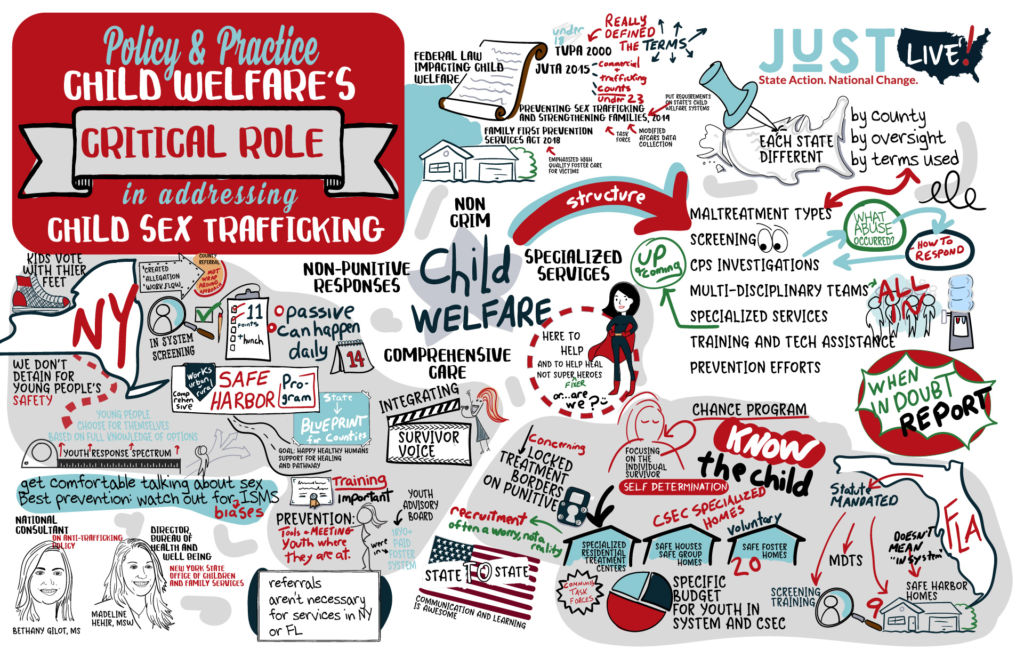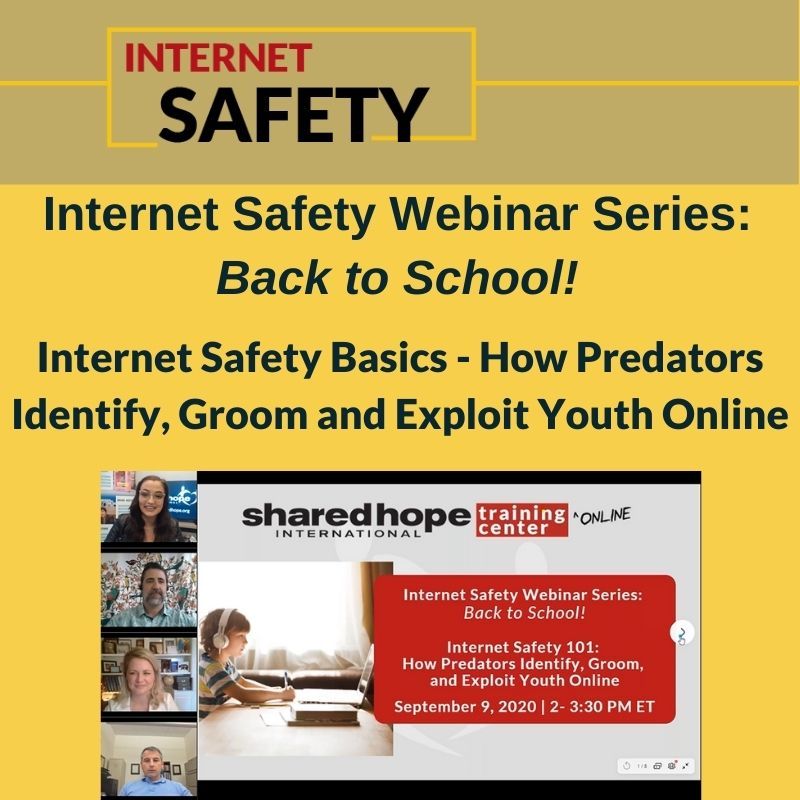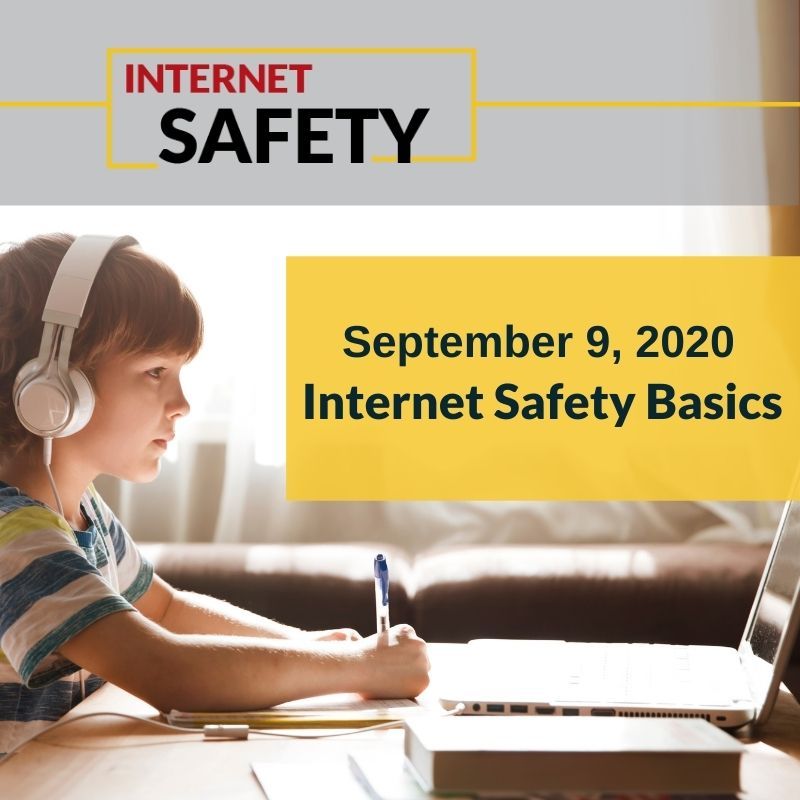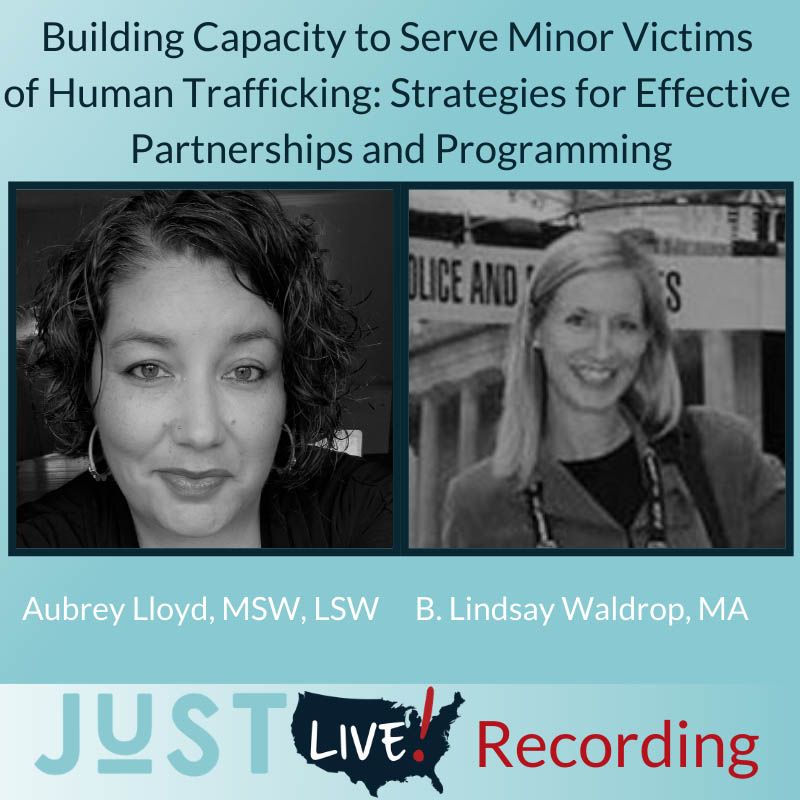Policy and Practice: Discussing Child Welfare’s Important Role in Addressing Sex Trafficking
Policy and Practice: Discussing Child Welfare’s Important Role in Addressing Sex Trafficking
$0.00
Issue Area #2: Identification of and Response to Victims
Friday, October 9, 12 – 1:30 PM ET
In recent years, child welfare (CW) agencies across the U.S. have initiated or strengthened strategies to address the commercial sexual exploitation of children (CSEC) in their state ranging from identification to service responses. Much of this has been in response to requirements in federal legislation, such as Family First, JVTA, Preventing Sex Trafficking and TVPA. However, CW response models vary greatly. This presentation addresses CW’s role in responding to CSEC through the lens of federal requirements and the broader lens of safe harbor principles. Presenters will discuss common questions about CW’s response and address policy and practice related to child protection screening, investigations, case management, placement, multidisciplinary approaches, and specialized services for CSEC.
Policy and Practice: Discussing Child Welfare’s Important Role in Addressing Sex Trafficking
Issue Area #2: Identification of and Response to Victims
In recent years, child welfare (CW) agencies across the U.S. have initiated or strengthened strategies to address the commercial sexual exploitation of children (CSEC) in their state ranging from identification to service responses. Much of this has been in response to requirements in federal legislation, such as Family First, JVTA, Preventing Sex Trafficking and TVPA. However, CW response models vary greatly. This presentation addresses CW’s role in responding to CSEC through the lens of federal requirements and the broader lens of safe harbor principles. Presenters will discuss common questions about CW’s response and address policy and practice related to child protection screening, investigations, case management, placement, multidisciplinary approaches, and specialized services for CSEC.
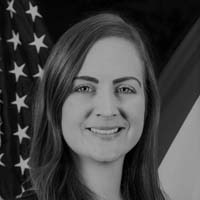
Bethany Gilot, MS, National Consultant on Anti-Trafficking Policy and Practice, BGilot Consulting, LLC
Bethany Gilot is an independent consulant working on anti-human trafficking initiatives from training and program development to state and federal policy. Among other projects, she assists state child services agencies in the development of human trafficking policy/practice. Bethany pulls on years of experience working in the anti-trafficking field both domestically and internationally. She previously served as the Statewide Human Trafficking Prevention Director for both Florida’s state child welfare and juvenile justice agencies where she helped strengthen systems of care for trafficked youth. In addition to public service, Bethany has worked at NGOs serving adult and minor sex trafficking survivors in Florida and India. This includes both direct care and program development experience.

Madeline Hehir, MSW, Director, Bureau of Health & Well-Being, Division of Youth Development and Partnerships for Success, New York State Office of Children and Family Services
Madeline Hehir is responsible for managing New York’s statewide efforts related to child trafficking and exploitation and the Runaway and Homeless Youth (RHY) service system. Madeline’s work, including policy and regulatory development, program development and management, training and technical assistance, and system oversight, is grounded in 10 years of experience ranging from international policy analysis for the United Nations to direct youth services within New York City’s foster care system. She earned her M.S.W. from McGill University; her master’s thesis focused on New York State’s Safe Harbour for Exploited Children Act.
Presenter handout(s) can be found here: https://webinars.sharedhope.org/wp-content/uploads/2020/10/JuSTLIVE20_PolicyandPractice_10920-1.pdf


